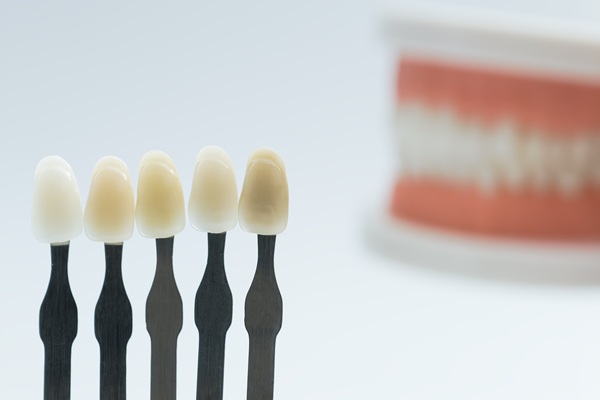General Dentist FAQs: Answers to Your Dental Concerns

Seeing a general dentist for regular checkups should be part of your dental care routine. This dental professional can help maintain and even improve your teeth and gum health. Asking the right questions can help you know more about proper oral care. Below are some of the questions you can ask your general dentist during your visits.
Why should one floss every day?
Daily brushing can remove food particles and bacteria in the mouth. But fine bristles cannot reach the narrow spaces between teeth. Flossing can remove plaque and food particles stuck in these spaces. Doing this before bedtime can help prevent plaque buildup. It can then prevent tartar formation.
Why is a regular dental checkup important?
There are many reasons why an individual may fail to see a general dentist for regular checkups. They tend to make an appointment when there is an issue like dental pain. Studies show that many dental issues do not have symptoms. The general dentist can keep an eye on these problems and provide early treatment. Regular dental appointments prevent serious dental problems and expensive treatments.
What can one do to prevent cavity formation?
Plaque is the sticky substance that remains on teeth after eating. When it accumulates, tartar and cavities form. So, one should make sure to get rid of plaque every day. This is possible through daily brushing at least two times a day, for two minutes each time, as well as flossing before bedtime. Reducing one’s intake of sweet, sticky, and acidic foods and drinks is also important. Seeing the general dentist for regular dental checks and cleanings can also prevent cavities.
Why is fluoride important to oral health?
Food and water have a naturally occurring mineral called fluoride. This mineral also comes in the form of supplements. Fluoride can strengthen the enamel and shield it from plaque. This protects the teeth from cavity formation. That is why a general dentist will often encourage patients to get enough fluoride.
Are dental X-rays necessary?
Physical dental exams are not enough to identify hidden dental problems. The general dentist must see underneath the gum tissue and through the jawbone. That is why dental X-rays and other diagnostic scans are important. Problems like tumors or gum disease can then receive proper treatment right away. This can prevent more extensive and expensive treatments later.
What are the early signs and symptoms of oral cancer?
Any part of the mouth can develop cancer. Research shows that oral cancer has an extremely high rate of mortality because of late detection. Spotting this condition early can lead to early treatment, which can result in a possible cure. Below are some early symptoms to watch out for:
- Numbness of specific areas of the mouth
- A persistent sore throat or ulcer
- A swelling in the neck that lasts for at least three weeks
- A red or white patch on the inner lining in the mouth, gums, or tongue
- A feeling of having something stuck in the throat
- Hoarse voice or chronic sore throat for at least six weeks
What does a general dentist do if there is an abnormality?
The general dentist will take a sample of the abnormal tissue and send it for a biopsy. A brush biopsy is ideal. This is a painless oral cancer test that does not need a topical or injectable anesthetic. The general dentist will use a small brush to scrape off some cells from the affected area. The biopsy will take days, but the results will include the lesion’s nature.
How can one prevent bad breath?
Good oral hygiene can help prevent foul breath. Brushing for two minutes at least two times a day and flossing before bedtime are ideal. Regular toothbrush replacement can also maintain effective and efficient brushing. Proper cleaning of removable dental restorations can get rid of food particles and plaque. Stopping smoking can also improve one’s breath. Also, drink more water to encourage more saliva production.
What is a dental emergency?
Knowing when to see a general dentist for a dental emergency can save time, effort, and money. Sometimes, what seems to be a dental emergency can wait for a regular treatment. Understanding if the issue is an emergency can help the patient receive proper treatment for it. The following are common dental emergencies to remember:
- Broken or cracked dentures
- A broken or chipped tooth
- Swelling or pain in the gums or whole mouth
- A mouth infection
- A dislodged or knocked-out tooth
Your general dentist can provide more information during your visit
Dental health is an important part of your general well-being. The primary goal is to prevent severe oral issues. This is possible with regular dental checks and cleanings. Gaining the right dental health education can also help. Working with your general dentist can target and resolve your dental issues right away.
Request an appointment here: https://implantfamilydentist.com or call Miami Implant & Family Dentists at (305) 230-4040 for an appointment in our Miami office.
Check out what others are saying about our dental services on Yelp: General Dentist in Miami, FL.
Recent Posts
General dentistry commonly handles toothaches among other dental concerns. While this is a routine issue that is easily treatable, it is common for patients to have several questions about it and what they should do if they experience it. Here we will answer some commonly asked general dentistry questions and advice on the best ways…
A general dentist will tell you all of the benefits of flossing on a regular basis. Flossing should be a very important part of your daily oral hygiene routine. Brushing your teeth is the first round of defense in fighting tooth decay but do not underestimate the value of flossing. When you get into the habit…
If a general dentist recommends fluoride treatments, patients may express concerns about the lasting effects of fluoride. They may also wonder whether eating and drinking are possible immediately afterward. Fortunately, fluoride is one of the easiest dental treatments to undergo with little to no waiting period and great benefits in the long term. Just a…
A general dentist is frequently called upon to diagnose and treat dental abscesses. Failure to get treatment for this infection can have serious health consequences.A tooth is said to be abscessed when a pocket of pus forms due to a bacterial infection. Patients who exhibit symptoms of an abscess should see a dental professional.People experiencing…


